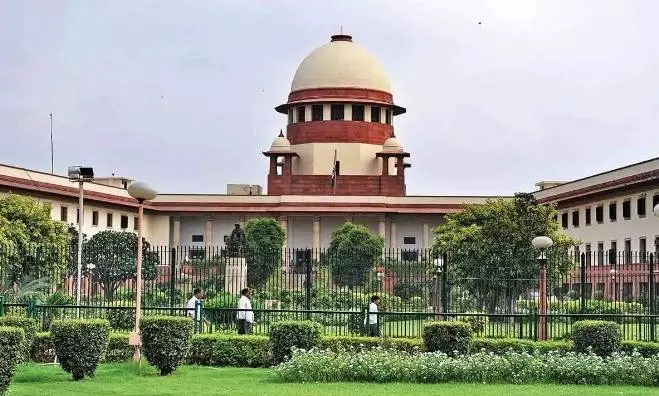
A consoling verdict
text_fieldsThe Yogi Adityanath government's madrassa eradication move has been thwarted at least for the time being. This comes with the three-judge bench of the Supreme Court headed by Justice Chandrachud upholding the legality of the Uttar Pradesh Board of Madrasah Education Act 2004 brought about by the Mulayam Singh government two decades ago. The court also set aside the Allahabad High Court's judgment that struck down the act. The Hindutva government that opposes secularism in principle and in practice won the Allahabad High Court’s verdict in favour of its madrasa-beheading initiative by terming these schools anti-secular and violative of the Indian Constitution. However, the Supreme Court rejected the UP government's argument stating that as per Article 30 of the Constitution religious minorities have the right to establish and run religious and secular educational institutions. The court order has dispelled concerns about the future of nearly 17 lakh children studying in around 16,000 madrasas in the state. The UP government was on the verge of shifting all these children to government-aided schools.
Madrasas functioning in the states like UP, Bihar and Uttarakhand are actually not just religious schools as is widely misunderstood. They are full-time schools where both religious and secular subjects are taught. Non-Muslim students have been studying for long in what can be called these Urdu medium schools. It should be remembered that many national personalities including the first President Rajendra Prasad were madrasa products. There are thousands of villages in the country where government schools do not even nominally exist. It cannot be forgotten that the faction committed to uprooting Islamic culture from the country is targeting the madrasas established and run by local residents under the supervision and assistance of the Jamiat Ulema Hind, which fought alongside the Indian National Congress in the freedom struggle, and also with the help of other religious outfits. The madrasa movement has been led to date by scholars who have received higher education from world famous schools like Darul Uloom Deoband and Nadwatul Ulama Lucknow. The UP Chief Minister Yogi Adityanath and like-minded people are motivated to destroy generational Islamic cultural background of Muslims not because of their ignorance of these matters. They are not ready for a rethink despite having faced a heavy setback in the Lok Sabha elections to their extreme racial bias.
Here is another aspect of the madrasa movement that should not be overlooked. As pointed out by the Sachar Committee, extreme poverty and hunger prevent Muslim families from sending their children to quality schools. In madrasas, expenses for accommodation, food and education are provided free of charge through generous donations. According to the latest estimates, majority of the remaining 22 crore poor people in the country belong to the religious minority that even face threat to their citizenship. The government should have granted recognition and financial support to the madrasas, if its goal was to improve the quality of madrasas and provide modern education as claimed by the lawyers who appeared for the government in the court. However, an estimate in 2016 showed that only 10,064 Madrasas across the country receive financial assistance from the government. It is insufficient though. Thousands of madrasas are functioning without receiving any governmental help. It is estimated in 2021 that there are 1.1 crore Muslim children who are denied this luck for gaining literacy. The less said about the attitude of obscuring these stark realities and keeping a people out of the process of nation-building, the better. The humanists of the country are comforted by the fact that there is a Constitution that treats humans of different castes and religions as equals and a judiciary that implements justice by embracing its spirit.























